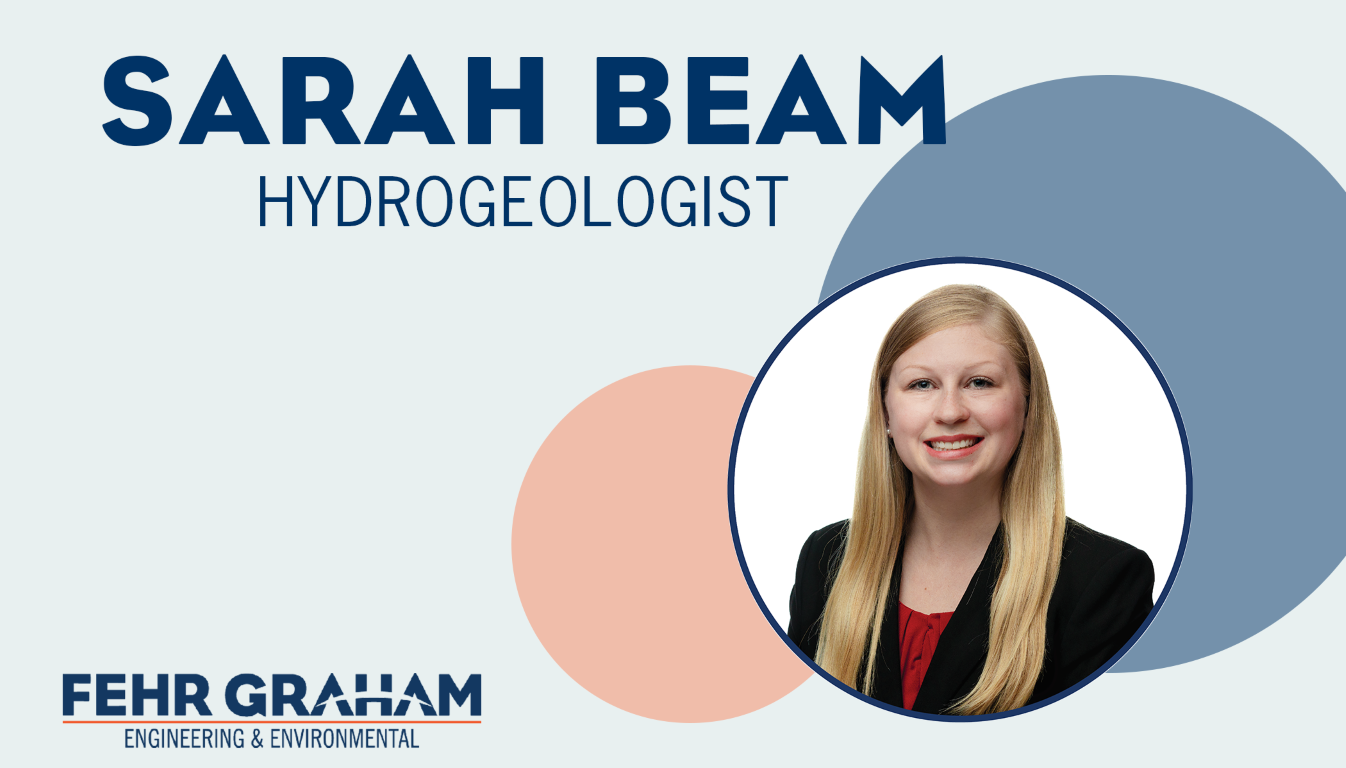National Engineers Week: Meet Sarah Beam

National Engineers Week is celebrated in February every year. The goal is to educate the public through classroom contact, media and visible public service. Today, we get to know Project Engineer Sarah Beam.
What made you choose engineering as your career path?
My choice to venture into the career of environmental engineering started as a love for nature. My family and I took hiking, backpacking and ski trips since I was a child, so I knew pursuing a career in conjunction with the environment would be fulfilling. Environmental engineering involves finding strategies to advance societal development in a way that balances human health with the preservation of environmental systems. The merger between the two fields continues to keep each day interesting.
What project are you most proud of?
I am most proud of a stormwater study focused on a densely urban setting. The implementation of bioswales and vegetative treatment systems to filter stormwater in a developing, paved setting resulted in a cleaner downstream river. The improvements of the natural waterway, while maintaining the needs of the economic development area, were challenging and rewarding to participate in.
Fehr Graham strives to be innovative. What aspects of engineering are innovative or are becoming innovative?
As medical knowledge advances, emerging health concerns result in new engineering problem-solving opportunities each day. The response to emerging contaminants in land use and water quality keeps the environmental engineering field innovative. In addition, technological innovations allow for more efficiency and precision in work methods, such as the use of drones, hydrologic modeling and 3D printing.
Why do you think engineers are important?
Engineers are important because they research, test and implement new strategies regarding the way people interact with air, water, land and each other to minimize risk and maximize life quality. Engineering designs not only help keep people safe, but they also add to the efficiency of everyday tasks. Something as simple as using a washing machine frees up hours of time to pursue other work ventures or personal passions.
What do you wish more people knew about engineers?
I wish people knew the vast number of other fields environmental engineers interact with. My engineering involvement has ranged from the frequent real estate, manufacturing, hospitals, schools, and public works clients to more unique ventures such as monitoring waste at music festival grounds, air quality in a Halloween haunted house and mud contaminants in a zoo exhibit.
Collaborative, Insightful, Results-Driven Solutions
Fehr Graham provides innovative engineering and environmental solutions to help improve the lives and communities of our customers.
